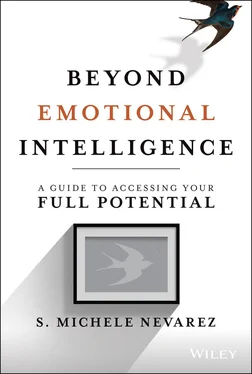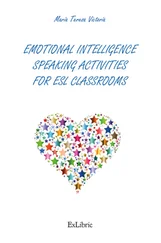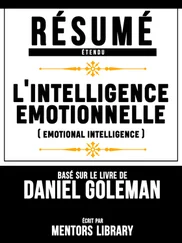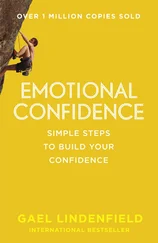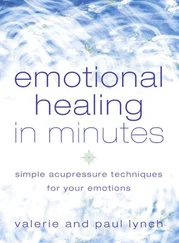Typically, we think of habits relative to our daily living patterns, like whether we managed to make it to the gym at least once before our membership expired, or whether we binge-watched yet another British detective series while polishing off our last bottle of wine and peanut M&M's. Others of us might have the aspiration to dial back how many hits of caffeine we imbibe every hour on the hour, or the number of times we consult our pocket oracles—otherwise known as our social media apps—to satisfy our uncontrollable urge to see who liked, loved, or ignored our last post. Who among us isn't waiting on the edge of our seats to check out this week's latest amateur TikTok videos, or to put to bed once and for all the question keeping millions of us up at night and dutifully checking our LinkedIn feeds each day to discover what in fact makes a good leader? A topic that has certainly kept us rolling in a seemingly endless mashup of articles and books on the matter.
Similarly, much of merit has already been written on habit change, mainly from the perspective of tactics and strategies we can take incrementally to shift our rather predictable responses to our outer context and environment. Yet, it is the internal landscape of our own minds that offers the richest set of clues about the constellation of mental habits giving rise to our outer or visible habits. What this book attempts to unravel is how our habits of perception and interpretation shape and inform how we make sense of what we perceive, and, in turn, how we act on them. As the reader, you will learn how what you think, say, and do is largely a habitual expression of how the brain is designed to make sense of each of these dynamic components relative to its own experience; how your habits of mind are the default, the source of how you habitually experience yourself, others, and the world around you. You'll learn to relate to your own awareness and its various qualities as the primary vehicle you have to shift your vantage point in the present moment and your perspective and interpretation of what follows. By developing your own capacity for conscious awareness, you begin to see yourself as an agent capable of discerning when your mental habits governing your interpretative narratives may be getting in the way. You'll learn where in the soup of perception you can have greater conscious involvement and say in what we otherwise experience as a seamless unconscious process. When we learn how to relate to our own cognitive and sensory processes with greater mental acuity, a.k.a. conscious awareness, we welcome the possibility for greater parity between our desired actions and outcomes and the ones we're setting ourselves up to get. At a minimum, we can act with a more informed knowledge of what we do and do not have the capacity to influence within ourselves, and how we can act with greater clarity of being, if not unencumbered then at least less encumbered by our interpretative overlay. Not once and for all, of course, but in each new moment our perceptions call upon us to do so.
You'll be introduced to a number of frameworks and methods throughout the book, each meant to provide you with practical strategies to remind you what you have influence over within yourself and how best to access it in the present moment. Both the MindBody Map and the 12 Self-Discoveries are designed to help you surface and work with the mental models informing the interpretative overlays you use to make sense of your perceptions, and, in turn, the influences that give rise to your self-identity and your social identity, the source and expression of how you move through the world and are in relationship with yourself and others. You'll explore how each of these components of who you are feeds your overall sense of purpose, agency, and wellbeing—a blueprint of what you rely upon to make sense of your experience. As you learn to practice new ways of minding 1 and paying attention, you'll gain perspective and insight into how you are the common denominator, the creator of your own experience. You'll learn how enacting various aspects of your own awareness better positions you to evaluate whether the mental models you regularly employ to organize and make sense of your life are reflective of what you want to prioritize and elevate—and if they aren't, how you can start accessing your own awareness to shift your perspective and develop new ways of parsing the meaning you choose to make.
Upon embarking on this inner journey, you'll have a much better sense of whether the mental constructs you employ again and again are yielding the ideal outcomes and relationships you want to have, and how you can become more cognizant of and intentional about how you habitually make sense of life. In the same way you can be strategic about creating the external conditions to be conducive to the behaviors and habits you want to reinforce and promote in yourself, so too will you learn how to do this on an internal basis. By becoming familiar with and learning to notice the qualities and expressions of your own awareness, you'll increase what you're capable of influencing by virtue of your own agency of mind, the primary gateway to accessing your full potential. In short, we will investigate how the meaning we habitually attribute to our perceptions sets us on a trajectory that takes on a momentum and life of its own—for better or worse—and where you have the opportunity to intervene on your own behalf.
Despite our best-laid intentions, the frequency with which we often succumb to indifference or quickly lose interest in anything requiring ongoing effort requires we have enough interest to reinvigorate our aims once we've noticed they've petered out. This dynamic we face within ourselves is not dissimilar to the low-stakes attitude pervasively taken towards the global climate crisis or the various socioeconomic and political divides that run deep in almost every community across the globe. Maybe this is because we don't fully grasp the import our habits have on the individual and collective quality of our lives on this planet, or because the consequences of our habits aren't within close enough reach for our brain, whose primary job it is to assess and prioritize our body's most immediate needs, to have a natural inclination to do so. In other words, we don't immediately spot the causal relationships between perception and interpretation and the outcomes we are repeatedly getting on an individual and societal level. It is owing to a similar disconnect that our divisive and uncharitable narratives about ourselves and each other go unchecked and are at the root of a much deeper and more profound rift we perpetuate not only with other people but with ourselves.
If what I'm writing about has any hope of reaching the level of benefit and positive effect it has the potential to have, then it must also have the capacity to serve as a starting point for us each to unpack, reframe, and rewrite the mental models responsible for the inner state of affairs giving rise to the outer state of affairs. Although I have no background—literally none—in the arena of politics or social justice, the mechanisms for addressing the societal and collective narratives at the heart of any societal divide are not different than what is needed to address the personal narratives and habits of mind that hold us back as individuals in our own lives. After all, it is the stories we tell ourselves and the sense we habitually make of our perceptions that are at the heart of what gives rise to the patterns and themes that keep us complicit and comfortably opaque. Our mental models carry with them the seeds that separate and divide us from ourselves and each other. What plays out at a societal level is basically the same impasse happening inside each one of us on a much broader scope and scale. Anything we do to arrange the outer conditions with the intent to reform, such as much-needed policy and structural changes, will continue to be met with obstacles and resistance unless and until we attempt to dismantle the confusion at the level of individual perception. It's a “both and” value proposition—it's not one or the other. Both have to happen in tandem.
Читать дальше
